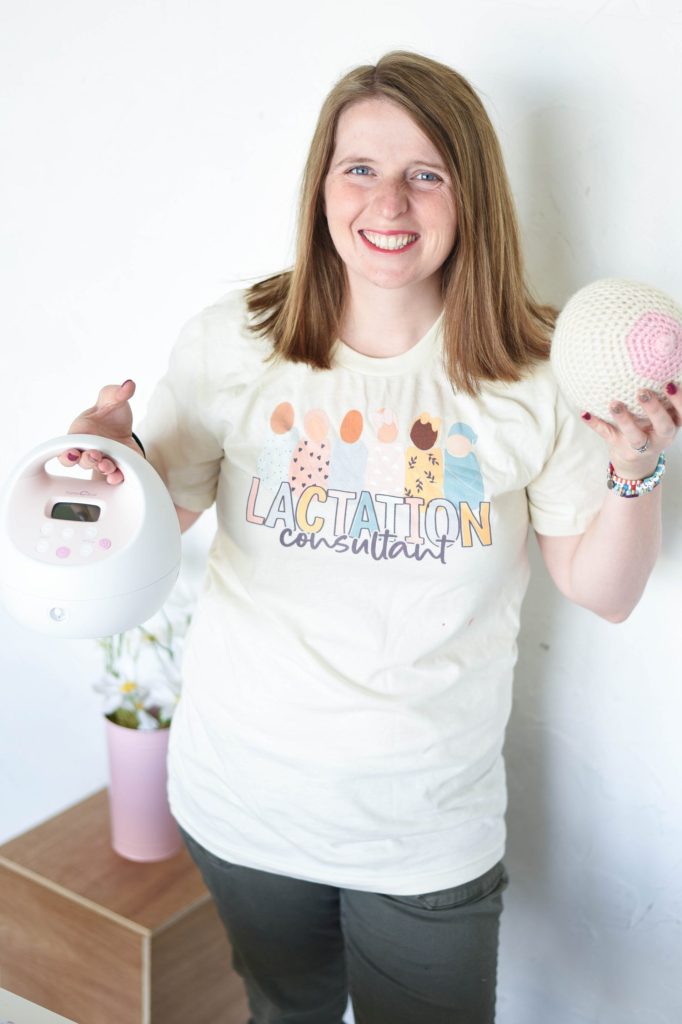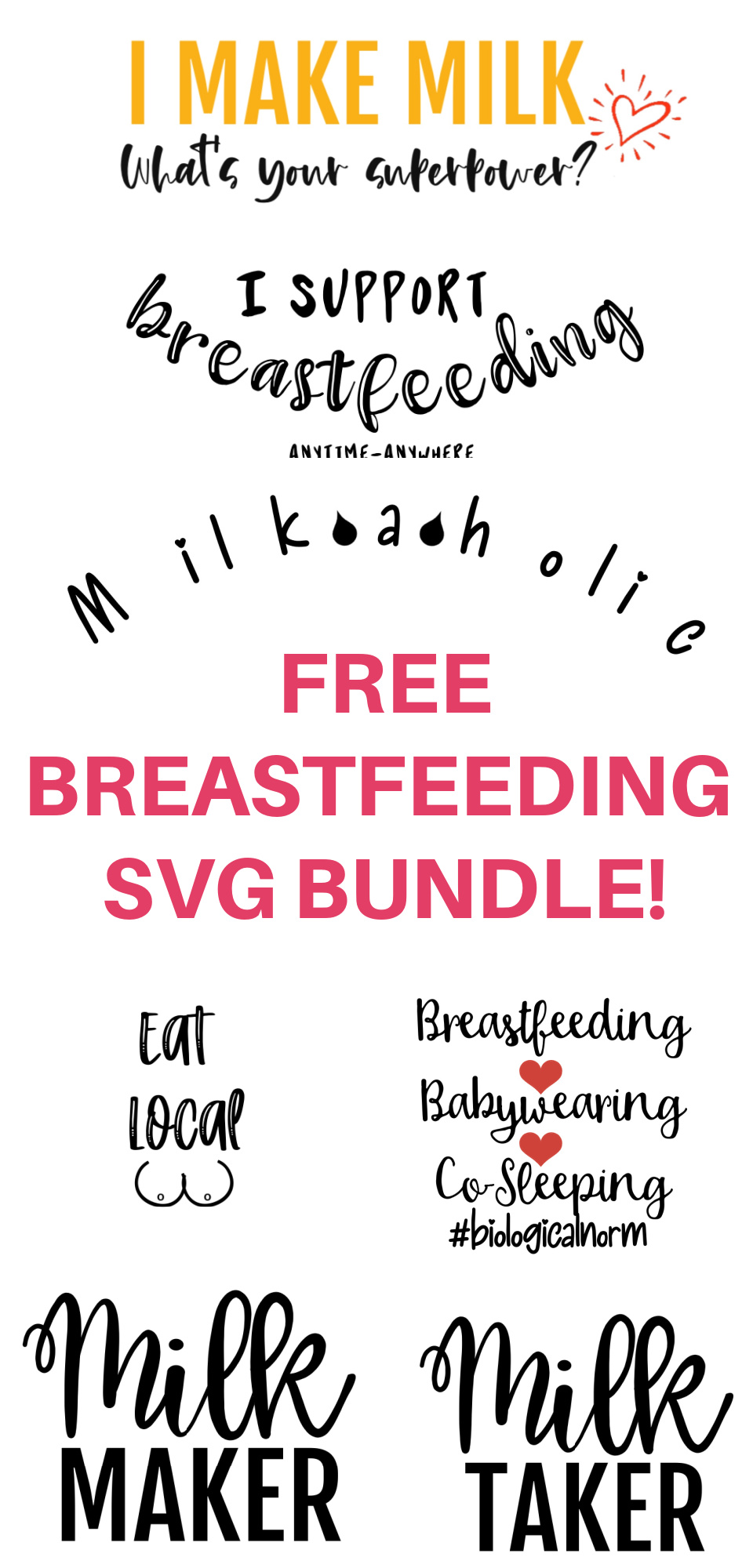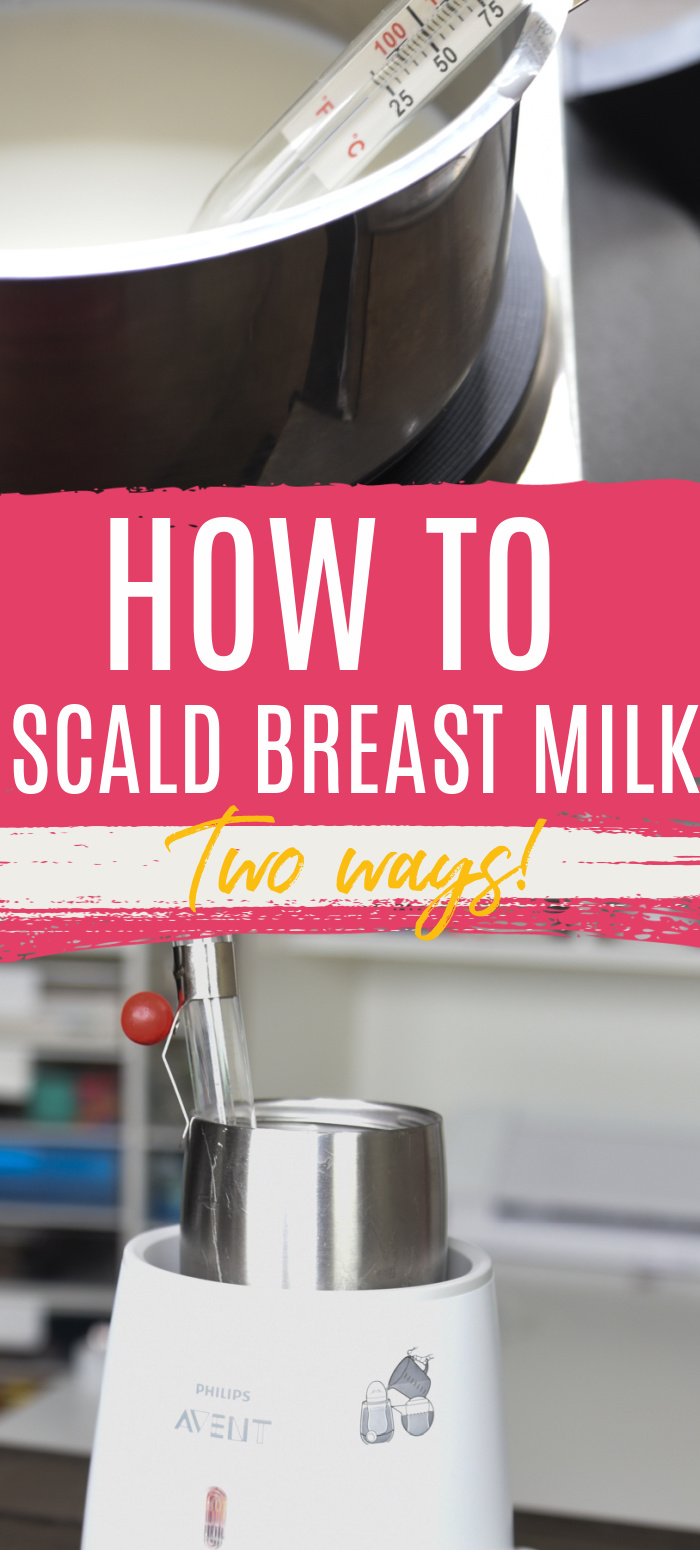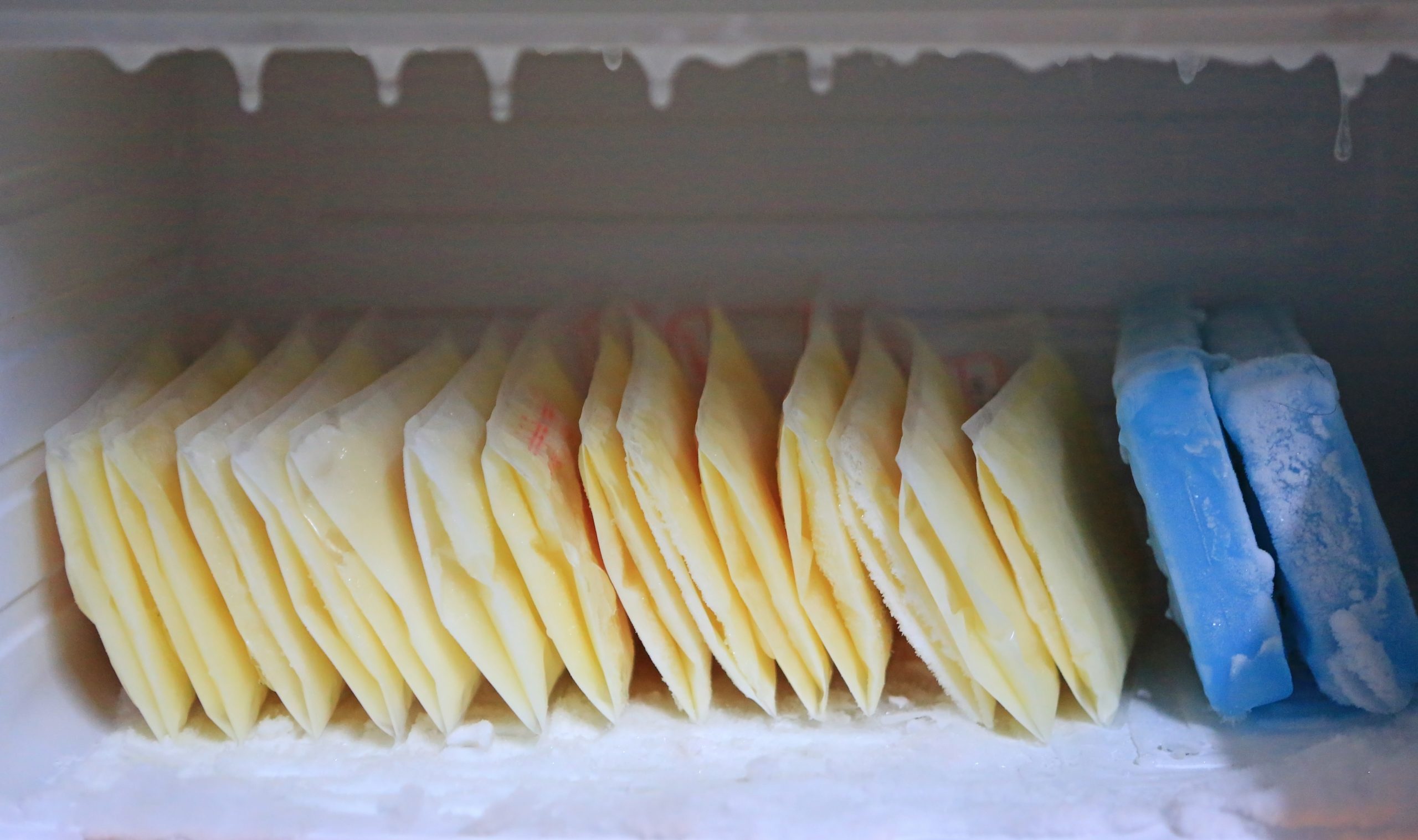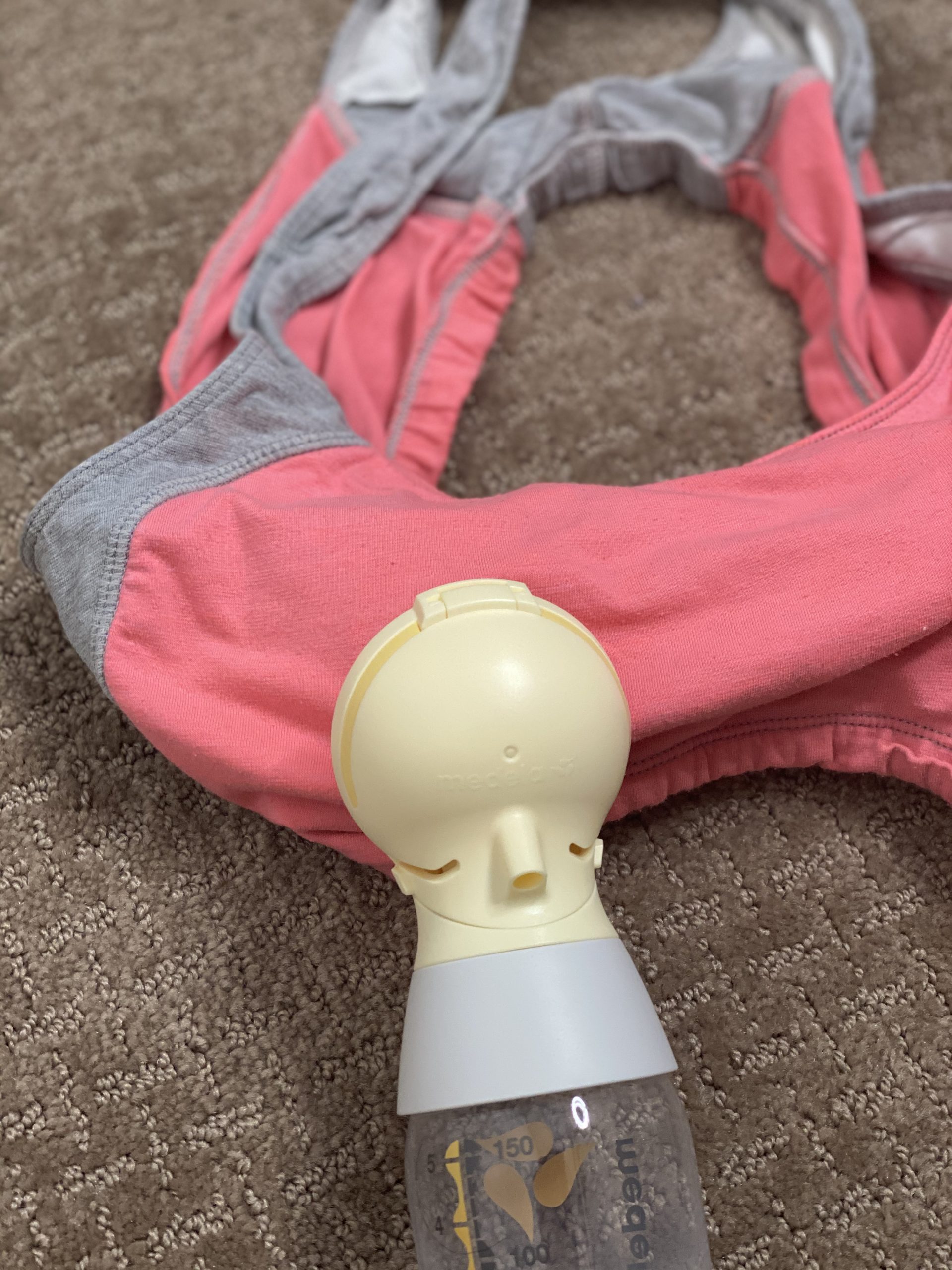If by chance your baby drinks spoiled breast milk you might be worried. So what exactly happens if baby drinks spoiled breast milk? In this article, you will learn everything you need to know about this topic.

Signs of Spoiled Breast Milk
Breast milk is amazingly resilient, but it still is prone to spoiling. Once it has been expressed from the breast, it can be exposed to harmful bacteria. Here are a few signs to look out for that your breast milk may have gone bad.
Dark brown or green
Breast milk can be a variety of different colors – and if your breast milk is green or a shade of brown, it doesn’t necessarily mean it’s rancid. However, if you have reason to believe it’s gone bad, or there are spots that look like green or brown mold, that’s a good reason to toss it.
Clumps or chunks in the milk
Breast milk sometimes separates as it sits, and sometimes this can be chunky/thick at the top. This isn’t a problem and is most likely fat globules.
The main problem is if you notice lots of chunks throughout the breast milk as if it is curdled. This is pretty uncommon, ad it would typically happen if the milk had been sitting out for long periods of time.
Sometimes if you are suffering from mastitis or clogged ducts, you may notice chunks or clumps in your breast milk, which appear as you pump.
Discolored/slimy liquid on the surface
If your breast milk has any discolored and slimy liquid, it might be a good idea to make sure it hasn’t gone bad.
Rancid or Sour smell
If you are concerned about the status of your breast milk, the smell test is a great way to check. While breast milk can have various smells, if it smells rancid or overly sour, you probably should toss it out. If it becomes a continual issue, despite proper handling
Bad Taste
If you tasted your breast milk and it tastes rancid, toss it!
It’s been at room temperature for longer than 4-6 hours
Typically breast milk can stay good for up to 4-6 hours at room temperature. If it’s been longer than that – or the temperature has been a lot hotter for an extended period of time, it’s better to not risk feeding.
When in doubt, throw it out
No one ever wants to toss out breast milk – but it’s sometimes better safe than sorry. If you have concerns about the quality of your breast milk, throwing a bottle out is just fine.
What ISN’T a Sign of Spoiled Breast Milk
Breast milk is a living organism, which means it can take on different appearances that may alarm you. However, just because something has changed with your breast milk doesn’t mean it is spoiled.
Fat separation
The fattier parts of the breast milk often settle at the top of a bottle after it’s been refrigerated for awhile. This is very normal and not a sign that anything is wrong with your breast milk.
Watery milk
It’s common to be worried about the appearance of your breast milk and to wonder if it looks too watery. Remember, breast milk is more than 80% water, so if your milk looks a bit watery, that is just fine.
Metallic smell or Soapy Smell or Taste
Many new parents are alarmed when they smell or taste their breast milk and find that it has a metallic smell/taste or soapy smell/taste. This is often a sign of having high lipase breast milk.
All breast milk has lipase but for some, there is a high level of lipase that impacts the taste/smell. This typically happens after breast milk has been frozen or even refrigerated. You can scald your breast milk for freezing to help prevent this from happening.
Some babies will refuse the milk but if your child doesn’t seem to care, you can continue to offer the breast milk.
Baby rejecting milk
If your baby is suddenly rejecting milk you are feeding, it could be because it’s gone bad – but often, there is another culprit. Pregnancy, your period, mastitis, and exercise can all temporarily change the taste of breast milk as well. And sometimes, babies just don’t want to drink the milk they are offered!
Variations in color/appearance
As previously mentioned, breast milk can vary in its color/apperance. This can happen because of the mother’s diet, stage of the breast milk, or even if the baby or mom is sick. Most variations are within the realm of normal.

Why does breast milk go bad?
There are different reasons why breast milk may go bad.
Most commonly, it is because it has been left out too long and not refrigerated properly. It can also go bad if the milk is exposed to bacteria or other contaminants, such as mold or dirt.
Finally, breast milk may start to taste sour if the mother is taking certain medications that can pass into her milk.
To avoid spoilage, mothers should always refrigerate their breast milk, and discard it if it has been left out for more than two hours. It is also important to store breast milk in clean containers and to make sure that bottles are thoroughly cleaned with hot water between uses.
What to do if baby drinks spoiled breast milk
So, what happens if your baby drinks milk that you realized was spoiled? Here are some things to consider:
Contact your healthcare provider if your baby is showing any signs of illness or dehydration, or if they are more susceptible to certain illnesses.
Take a Deep Breath
Chances are, everything is going to be alright. Take a deep breath, forgive yourself, and keep an eye on your baby. If your baby is old enough, you can give them a few sips of water or breast milk to help clear their mouth of any bad tastes.
Symptoms to Watch For
Of course, you want to make sure your baby doesn’t get sick. Here are a few things that might warrant a trip to the doctor:
- Upset stomach
- Non-stop crying
- Refusal to eat
- Signs of food poisoning, including fever, nausea, vomiting and diarrhea. If you experience any of these symptoms, it is important to see your doctor for diagnosis and treatment as soon as possible. Certain types of food poisoning can be serious and require immediate medical attention, so it’s always better to err on the side
- Any signs of dehydration, including:
- Sunken fontanelle
- Less wet diapers than normal
- Crying without tears
- Lethargy
Discard Any Remaining Spoiled Milk
You should discard any remaining spoiled breast milk to ensure they don’t drink anymore.
Feed Fresh Breast Milk
If your baby is willing, try and feed them some fresh breast milk. This can help them fight off any ill effects from spoiled milk.
How to Avoid Spoiled Breast Milk
The best way to avoid feeding spoiled breast milk is to prevent it from spoiling in the first place. Here are some tips to consider:
Freed Fresh Milk
Whenever possible, feed milk that has been recently pumped or hasn’t been frozen yet. While it’s perfectly safe to feed milk that has been frozen, the longer it’s been since it’s been expressed, the more opportunity it is for issues to arise.
Defrost Breast Milk Properly
Make sure you are following best practices for defrosting breast milk – you can defrost it in the fridge, in a bowl of warm water, or in a bottle warmer.
Avoid just letting it defrost on the countertop or in the microwave. Slowly defrosting helps prevent rapid temperature changes.
Store Milk Right Away
Unless you are going to be using the breast milk right away, you should store milk soon after you’ve pumped it – either in the fridge or the freezer.
Record Expiration Date
It can be hard to remember how old breast milk is – make sure you record directly on the storage container when it was expressed and the approximate expiration date.
Use Appropriate Containers
When storing your breast milk, ensure that you are using appropriate storage for your milk – most commonly, breast milk bags or food-grade bottles are used. Double-check that they are sealed properly. Here are a few helpful resources:
Discard Leftover Breast Milk
While there are various debates on whether or not (and for how long) you can give breast milk that has already been eaten from, the general recommendation is to use it for the next feed but not much longer.
If you’ve gotten past that window of time, you should discard it to prevent any issues.
Ice Packs/Cooler Bags
Using ice packs and cooler bags can help prevent spoilage, especially if you aren’t able to storage breast milk right away. We personally love the Ceres Chill.
Clean/Replace Pump Parts
Pay attention to the replacement schedule for your specific pump. Some pump parts can build up mildew or other bacteria, and it is just a good practice to clean your pump parts properly to prevent issues.
Inform Caregivers
It’s important that all caregivers of your baby are aware of how to handle breastmilk to make sure it doesn’t spoil and that it is not accidentally fed to your baby.
FAQs about Spoiled Breast Milk
Can Breast Milk Spoil Inside the Breast?
breast milk cannot spoil inside the breast. So rest assured that if your baby is drinking directly from your breast there is no need to worry.
Can Babies Get Sick from Old Breast Milk?
Yes, it is possible for a baby to get sick from consuming old breast milk. With that said, when properly frozen, breast milk can last in the freezer for up to six months. So unless you are feeding milk that is older than that (which still might be okay in some circumstances), they likely won’t get sick if it was stored and defrosted properly.
How long after drinking bad breast milk will a baby get sick?
This will be the same for any food poisoining – anywhere from 30 minutes to five days, however, some symptoms are usually seen within the first 24 hours. Here is a good guide to food poisoning symptoms by the hour/day.
How old is too old?
While there are varying recommendations for how old breast milk can be, according to the Center for Disease Control (CDC):
- 4 hours at room temperature
- 4 days in the refrigerator
- 6 months in the freezer (optimally) but up to 12 months is acceptable
What should breast milk smell like?
Most of the time it might have a slightly sweet aroma to it – it shouldn’t be overly pungent. As mentioned earlier, some breast milk may have a more metallic/soapy smell to it.
What can change the taste of breast milk
There are many things that can impact the taste of breast milk:
- Foods consumed by the mother
- Medications
- Herbal consumption
- Menstrual Cycle
- Pregnancy
- Exercise
- Mastitis
Proper Breast Milk Storage Techniques
One of the most important ways to prevent spoilage is by storing breast milk properly. Here is a good article on breast milk storage guidelines.
Here are some other tips:
- Make sure to keep milk properly chilled
- Use good-quality storage bags or other breast milk storage containers
- Avoid storing in the freezer or refrigerator door
- A deep freezer is ideal for long-term storage.
While the effects of consuming spoiled breastmilk are usually mild, it can cause serious complications if left untreated. Parents should always ensure that they follow proper storage and cleanliness guidelines when handling and storing breastmilk to avoid potential side effects for their little ones.
Other articles you may enjoy:
- Top Signs of Low Milk Supply To Worry About
- What Does Breastfeeding Do To Your Breasts?
- 22 Low Milk Supply Causes You May Not Know About
- Can Breastfeeding Cause Depression?
- Why Is Breastfeeding Painful?
- Can Breastfeeding Cause Headaches?
- Can Breastfeeding Moms Have Protein Powder?
- 8 Breastfeeding Problems After A C-Section
- Can Breastfeeding Cause Breast Cancer?
- The Ultimate Guide To Dairy Free Breastfeeding
- Can Breastfeeding Make You Tired?
- 5 Soothing Solutions for Dry and Cracked Nipples From Breastfeeding
- What Breast Should I Start With When Breastfeeding?


